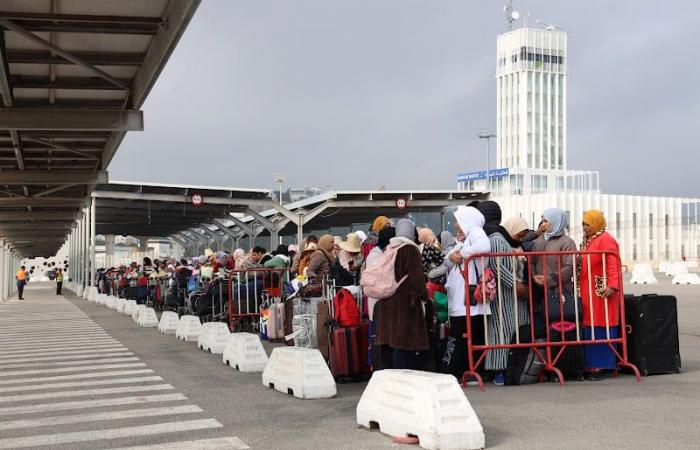A substantial reform of the regulation relating to the Immigration Law has been announced, aimed at reducing delays and easing the requirements for the regularization of the administrative situation of migrants residing in Spain.
According to the Spanish government, nearly 300,000 people could benefit from this new regulation each year over the next three years. This was clarified by Elma Saiz, Minister of Inclusion, Social Security and Migrants, during the press conference which followed the approval by the Council of Ministers of this measure.
Saiz called this reform “the most ambitious and comprehensive” of the immigration law in force for 13 years. Notable changes include the reduction of the residence time required to access regularization schemes, from three to two years, as well as the introduction of an initial duration of one year for all visas.
In addition, protection mechanisms for seasonal migrant workers were introduced and family reunification was strengthened. The minister highlighted that, according to many international organizations, including the United Nations, Spain needs 250,000 to 300,000 foreign workers per year to maintain its state of well-being, a figure that corresponds precisely to the estimated number of beneficiaries of this new regulation.
Among the major developments of the new regulation, the transformation of regularization systems stands out, allowing foreign nationals in an irregular administrative situation living in Spain to access administrative legitimacy.
This new legislation introduces a new category of regularization, enriching the existing options which until now included regularizations of a social, professional, family and training nature. Now, a “second chance” will also be offered, targeting individuals who have missed the deadline for their procedures.
Another significant change lies in the reduction in the length of stay required to apply for this regularization, now lowered to two years. As the minister pointed out, at the end of 2023, 210,334 people had already obtained regularization authorization, which represents an increase of 84,983 compared to the previous year. In addition, between 2022 and 2023, the number of beneficiaries of this type of permit increased by 30.4%.
« We have estimated that with this reform, it will be possible to regularize, on average, 300,000 people per year over the next three years.“, she concluded.






